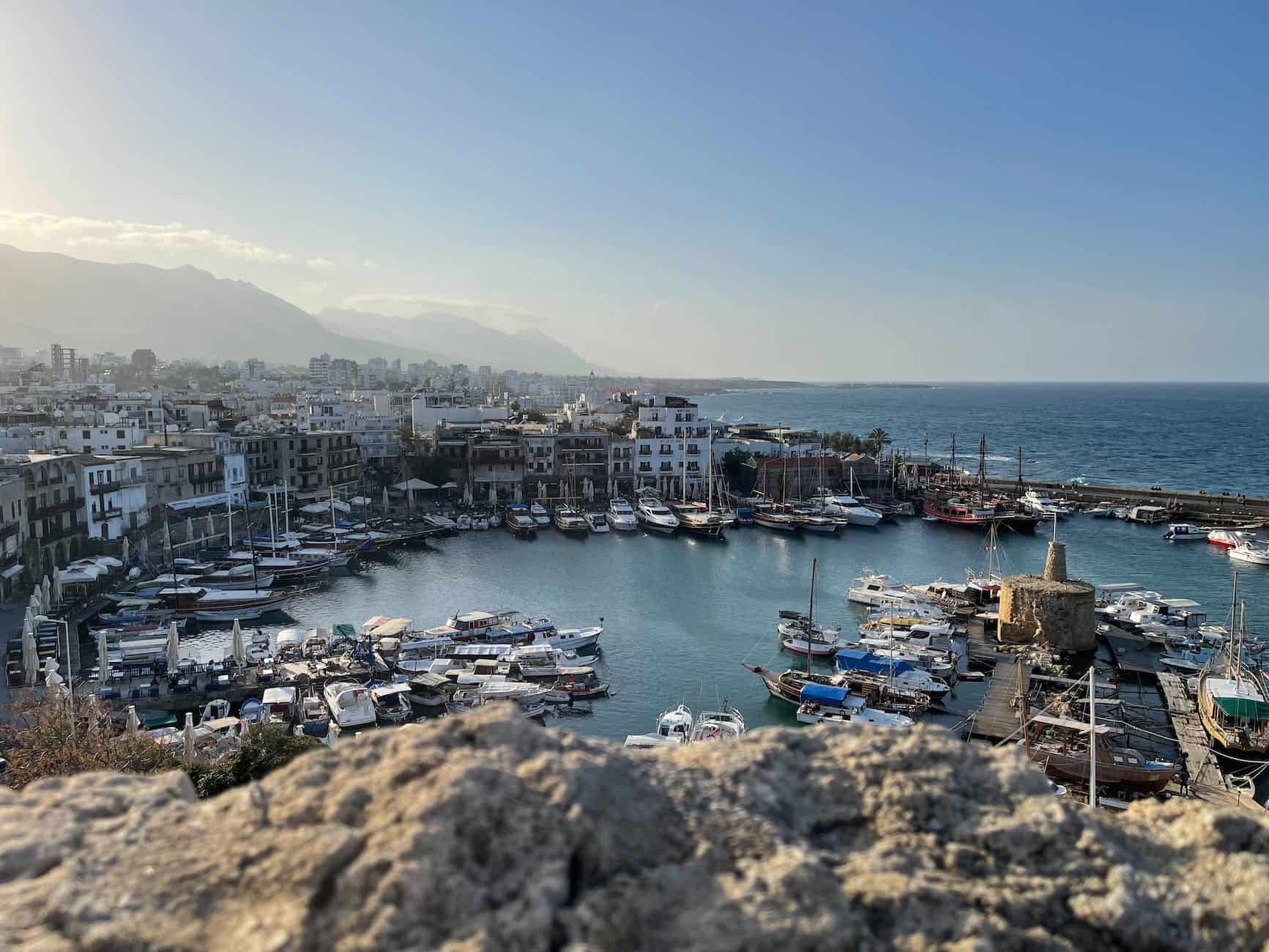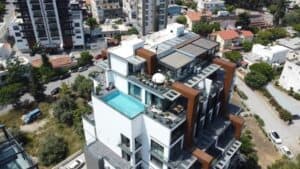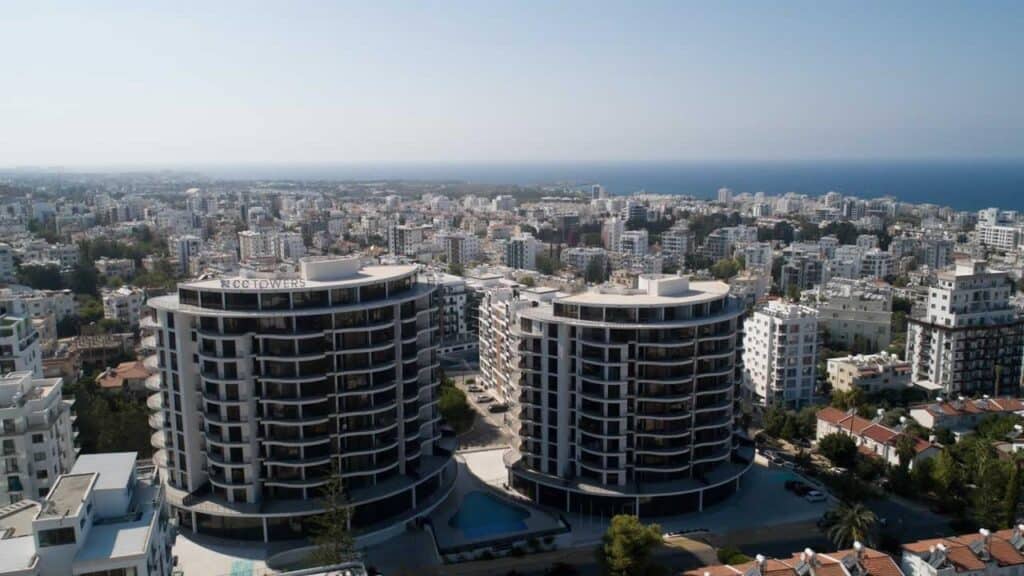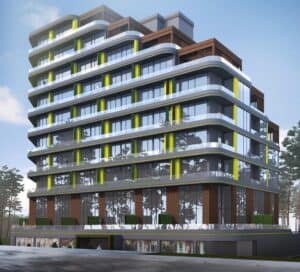In the world of real estate investing, venturing into unfamiliar territories often holds the promise of lucrative returns. However, like a ship navigating uncharted waters, an investor must have a comprehensive map to avoid pitfalls and reach the desired destination successfully. When the terrain in question is the enigmatic property market of North Cyprus, the need for a detailed guide becomes even more significant.
Welcome to the detailed guide on ‘Education Before Investment: Understanding the North Cyprus Property Market.’ This article serves as a robust navigational tool for prospective investors who wish to delve into the unique and often misunderstood property market of North Cyprus.
North Cyprus, with its pristine beaches, historic landmarks, and inviting Mediterranean climate, offers an undeniable allure. The property market, much like the location itself, holds a distinctive appeal for investors worldwide. A combination of competitive property prices, a growing economy, and promising development plans make North Cyprus a rather enticing investment prospect. However, beneath the appealing facade, there lies a complex web of factors that can significantly impact your investment journey.
In this article, we shall dissect the complexities of the North Cyprus property market, exploring its historical context, navigating its intricate legal landscape, and unravelling the promising investment opportunities it offers. We will delve into the trends shaping the market and arm you with predictions to strategise your investment effectively. Furthermore, we’ll guide you through the role of estate agents, the benefits, and potential risks of investing in North Cyprus.
As the old saying goes, “knowledge is power.” The more you know about the North Cyprus property market, the better equipped you will be to make informed, prudent investment decisions. In the end, it’s not just about investing, it’s about investing wisely, and that begins with education. So, without further ado, let’s delve into ‘Education Before Investment: Understanding the North Cyprus Property Market’.
Education Before Investment: Understanding the North Cyprus Property Market
The Importance of Education Before Investment
The tale of the successful investor always begins with a single, often underrated step: education. “Why bother?” one might ask, especially when the azure waters and golden beaches of North Cyprus present an undeniably tempting prospect for real estate investment.
The answer, as history and experience teach us, lies in the intricate tapestry of factors that construct any property market, particularly one as unique as North Cyprus. With its complex historical background, an evolving economic landscape, and distinctive legal framework, the property market of North Cyprus is far from straightforward.
Entering this market without a solid foundation of knowledge can be akin to navigating a labyrinth blindfolded. You might get lucky, stumble upon the right path and reach your goal, or you might wander aimlessly, losing precious time and resources in the process. The wisest course, therefore, is to remove the blindfold, illuminate your path with the torch of knowledge and tread with confidence and clarity.
Education before investment empowers you to make informed decisions, identify the best opportunities, and circumvent potential pitfalls. Understanding the North Cyprus property market is not just about knowing what properties are for sale or what the prices are. It goes much deeper, requiring an understanding of historical context, legal implications, market trends, and growth prospects.
A nuanced understanding of these factors allows you to ascertain the true value of potential investments, beyond their face value. You can identify the diamonds in the rough and the potential duds masquerading as lucrative deals. You’re better equipped to forecast potential risks, and you gain the foresight to see where the market might be heading, thereby aligning your investment strategy effectively.
Moreover, knowledge dispels fear. The unknown, the ‘what-ifs’, often induce hesitancy among potential investors, especially in a market like North Cyprus, which has its share of controversies and complexities. When you understand the market, the ‘unknown’ transforms into the ‘known’, the ‘what-ifs’ become clear scenarios that you’re prepared for. This understanding instils a confidence that bolsters your decision-making process and steels you against uncertainties.
In essence, the importance of ‘Education Before Investment: Understanding the North Cyprus Property Market’ cannot be overstated. It’s your compass in the expansive sea of investment, guiding your journey towards successful and secure property investment in North Cyprus. Let’s set sail, shall we?
The Unique Characteristics of the North Cyprus Property Market
Like a gem bearing distinct traits that distinguish it from its counterparts, the North Cyprus property market has its unique set of characteristics that set it apart. It is these characteristics that render the market both intriguing and complex, offering investors a varied palette of opportunities intermingled with challenges.
One key characteristic is the market’s intriguing status. The political situation in North Cyprus, with its separation from the Republic of Cyprus, impacts the property market significantly. This has led to a unique landscape where property ownership and titling are unlike any other place globally, creating a market that is both compelling and challenging to navigate.
The legal framework governing property ownership in North Cyprus is another distinctive trait. Understanding the different title deeds, their implications, and the regulations around foreign ownership are crucial elements of successfully investing in the North Cyprus property market.
Another unique aspect is the dual currency system – Turkish Lira and GBP are both used in transactions. This duality impacts property prices, transaction processes, and ultimately the return on investment. Knowledge of how this works can be the difference between a successful investment and an unfortunate misstep.
Then there’s the diversity of the property landscape itself. North Cyprus is a treasure trove of varied property types, from modern luxury villas and beachfront apartments to charming village houses and expansive plots of land. The market offers investment opportunities that cater to an array of preferences and budgets, offering a wider scope for investors to find a property that fits their unique requirements and financial capacity.
Lastly, the market trends and growth potential in North Cyprus are unlike other established property markets. The island, with its growing popularity as a tourist and retirement destination, coupled with its strategic location and significant development projects, promises an upward trajectory for property value. However, this growth potential is intricately tied with the island’s socio-political situation, making it all the more important to keep a close eye on local developments.
In conclusion, the property market in North Cyprus, with its distinctive characteristics, offers a unique investment landscape. It’s a market that demands a keen understanding and astute awareness of its nuances. This understanding is the cornerstone of ‘Education Before Investment: Understanding the North Cyprus Property Market’ and sets the stage for a fruitful investment journey. So, let’s forge ahead, shall we?
Historical Context of the North Cyprus Property Market
Understanding the Historical Background
Knowledge of the North Cyprus property market would be incomplete without considering its historical backdrop. The political and cultural history of North Cyprus has left an indelible impact on its property market.
The island of Cyprus, located strategically in the Eastern Mediterranean, has a long history of foreign influence and domination. The island was annexed by the Ottoman Empire in the 16th century and remained under Ottoman rule until the late 19th century when it was leased to Britain. It was eventually annexed by Britain in 1914, and in 1960, Cyprus gained independence from British rule.
Despite independence, the cohabitation of Greek Cypriots and Turkish Cypriots led to intercommunal violence, culminating in a military intervention by Turkey in 1974. The island was effectively partitioned into the Greek-speaking south and Turkish-speaking north, leading to the creation of the Turkish Republic of Northern Cyprus in 1983, recognised only by Turkey.
This complex history has significant implications for the North Cyprus property market. The partition resulted in displacement of populations on both sides, leading to issues related to property ownership and title deeds. A deep understanding of this historical context is critical for any investor considering property investment in North Cyprus.
Implications of the Political Situation on the Property Market
The unresolved political situation in North Cyprus directly influences its property market. The most significant impact of the political situation is the issue of title deeds. Many properties in the north were originally owned by Greek Cypriots who fled during the Turkish intervention in 1974. As a result, many of these properties were subsequently sold or allocated to Turkish Cypriots or foreigners, creating a controversial issue around their ownership.
The Cyprus property issue has been subject to various legal challenges in local and international courts. Some cases have resulted in judgements favouring original Greek Cypriot owners, thereby creating a risk for investors who have bought such properties. It’s therefore crucial for potential investors to understand the type of title deed associated with a property and the legal implications thereof.
Further, the political situation has impacted foreign investment. The lack of international recognition for North Cyprus has meant that the region has been largely off-limits for international property developers. As a result, the property market has evolved in a distinct way, with local developers playing a significant role.
The situation also affects the availability of mortgage finance for property purchases. Most international banks do not offer mortgage products for properties in North Cyprus due to the political situation. Therefore, financing options are typically limited to local banks or developer-provided payment plans.
In summary, the political situation in North Cyprus presents a complex and unique environment for property investment. Careful navigation and a thorough understanding of the implications of these issues are paramount for successful investment in this market.
Legal Framework of the North Cyprus Property Market
Understanding Title Deeds in North Cyprus
One of the most critical aspects of property investment in North Cyprus is the understanding of its title deed system. The unique political history of North Cyprus has resulted in a rather complex titling system with various categories of title deeds, each with its implications for potential investors.
- Pre-1974 Turkish Title Deeds: These are properties owned by Turkish Cypriots before 1974. This is the safest type of title deed, as these properties have no ownership disputes. For this reason, properties with pre-1974 Turkish Title deeds tend to command higher prices on the market.
- Pre-1974 Foreign Title Deeds: These refer to properties owned by foreign nationals (other than Greek Cypriots) before 1974. Like the Turkish Title deeds, these deeds are also considered safe and free from ownership disputes.
- Pre-1974 Greek Cypriot Title Deeds: These properties were owned by Greek Cypriots before 1974 and are considered high-risk investments. The ownership of these properties has been a point of contention between North and South Cyprus, and several legal disputes have arisen over these properties.
- TRNC Title Deeds (Exchange or TMD Land): This title deed was created by the Turkish Republic of Northern Cyprus (TRNC) government for land given in exchange to Turkish Cypriots who left their properties in South Cyprus after 1974. While there are some legal concerns surrounding these properties, they are commonly bought and sold within North Cyprus.
- TRNC Title Deeds (Gift or TMD Land): This title deed is for land that the TRNC government allocated to Turkish Cypriots or Turkish settlers as a gift. These properties may be subject to future compensation claims by former Greek Cypriot owners.
Each of these title deeds carries its level of risk and potential complications. Therefore, it’s of utmost importance that investors understand these intricacies before embarking on their property investment journey in North Cyprus. Legal advice from a local expert is strongly recommended to ensure you understand the potential implications of purchasing a property with a specific type of title deed.
Understanding Foreign Ownership Laws in North Cyprus
In addition to title deeds, another vital part of the legal framework that potential investors in the North Cyprus property market need to understand pertains to foreign ownership laws.
According to the laws of the Turkish Republic of Northern Cyprus (TRNC), foreign nationals are entitled to own property. However, there are certain restrictions that prospective foreign investors need to be aware of:
- Ownership Limit: A foreign individual is allowed to own one property in North Cyprus. The property can be a plot of land up to one donum (approximately 1,338 square metres) or a flat in a building on land of the same size. Married couples are considered as one person for the purpose of this law.
- Permission to Purchase: Foreign nationals are required to obtain a “Permission to Purchase” from the Council of Ministers of the TRNC. The process involves background checks and can take anywhere from 6 to 12 months. During this period, the property is held in the name of the vendor.
- Military Clearance: As part of the Permission to Purchase process, foreign buyers need to obtain clearance from the TRNC military authorities. This is a standard procedure applicable to all foreign buyers.
- Mortgages and Loans: While foreign buyers can apply for local bank mortgages in North Cyprus, it’s important to note that these may not be recognised internationally due to the non-recognition of TRNC by countries other than Turkey. Alternatively, some developers offer payment plans.
- Taxes and Duties: When purchasing a property, buyers are required to pay various taxes and duties such as VAT, Stamp Duty, and Transfer Fee. It’s essential to account for these additional costs when budgeting for a property investment.
Understanding these laws is critical when considering investing in the North Cyprus property market. It’s advisable to seek the services of a reputable local lawyer to guide you through the process and ensure all legal requirements are met, helping you secure your investment.
Economic Factors Influencing the North Cyprus Property Market
The Impact of the Dual Currency System
One of the most distinctive economic characteristics of North Cyprus is the dual currency system, where both the Turkish Lira (TL) and the British Pound (GBP) are used. The existence of this dual currency system has several implications for the North Cyprus property market, influencing everything from property prices to return on investments. Indeed, the majority of developers and sellers will be happy to take USD and EUR from buyers! The TL is not often used due to the volatility in that currency.
Primarily, the dual currency system can lead to some fluctuation in property prices. For instance, a property priced in TL can become significantly cheaper for a buyer using GBP if the TL weakens against the GBP. Conversely, if the TL strengthens against the GBP, properties priced in TL can become more expensive for those purchasing with GBP.
Furthermore, this dual currency situation impacts the transaction process. Typically, real estate transactions can be conducted in either currency, but the choice of currency can influence the dynamics of the transaction. For example, if the currency chosen for the transaction is not the buyer’s home currency, the buyer is exposed to currency exchange risk during the property buying process.
Investors also need to consider the dual currency context when assessing potential rental yields or capital appreciation. Rental income could be received in TL or GBP, and the fluctuations in the exchange rate can affect the actual income when converted back to the investor’s home currency.
Understanding the impact and nuances of the dual currency system is a crucial part of ‘Education Before Investment: Understanding the North Cyprus Property Market’. This understanding can help investors to devise an appropriate strategy and take informed decisions to maximise their investment returns while mitigating currency-related risks. Knowledge of the local economic landscape, including the dual currency system, can provide a distinct advantage in the North Cyprus property market.
Understanding the Effect of Tourism and Infrastructure Development
Tourism and infrastructure development are key driving factors in the property market worldwide, and North Cyprus is no exception. Understanding these influences is essential to assess the potential returns on property investment in this unique region.
Tourism is one of the principal sectors of the North Cyprus economy, with a steady rise in tourist arrivals observed over the years. This trend has a positive impact on the property market, primarily in two ways: the demand for short-term rental accommodation and the increase in property purchases by tourists who fall in love with the beauty and charm of North Cyprus.
The demand for holiday rentals, particularly in areas of high tourist interest such as Kyrenia and Famagusta, has seen a significant increase. This presents a lucrative opportunity for property investors, as rental yields in these areas are quite attractive. The rise in property purchases by tourists has not only spurred the residential property market but also led to a greater demand for commercial properties like restaurants, shops, and boutique hotels.
Infrastructure development, both current and proposed, is another key factor influencing the property market in North Cyprus. Several large-scale projects such as the construction of new highways, improvement of existing roads, and development of the Ercan International Airport have made parts of North Cyprus more accessible and attractive for investment.
Additionally, the recent opening of the water pipeline from Turkey, which provides a sustainable supply of fresh water to North Cyprus, is a game-changer. This project opens up new areas for development and increases the value of existing properties. As at June 2023, there are also plans to connect to Türkiye’s electricity grid with an interconnector. This would be amazing, as it would remove the occasional risk of power cuts due to the rather antiquated generators at the KibTek plant, and also allow the island to export excess solar energy production to the mainland when the sun is shining – a win-win.
Moreover, the planned development of the port at Famagusta and the proposed railway line connecting major cities in North Cyprus are likely to provide a significant boost to the property market.
In conclusion, keeping an eye on tourism trends and infrastructure development is paramount for property investors in North Cyprus. These factors not only influence the present state of the property market but also shape its future direction, and consequently the potential returns on property investment.

Navigating the North Cyprus Property Market
Recognising the Ideal Locations for Investment
Identifying the right location is a crucial factor in property investment, often dictating the success of the investment. With its stunning Mediterranean beauty, historical sites, charming villages, and vibrant cities, North Cyprus offers a variety of locations each with its unique appeal and potential for investment.
- Kyrenia (Girne): Known for its picturesque harbour, ancient castle, and vibrant nightlife, Kyrenia is a top favourite among both tourists and expats. The demand for both residential and commercial properties is high in Kyrenia, making it a promising location for investment. The region is also home to several luxury property developments and high-end villas.
- Famagusta (Gazimağusa): With its pristine beaches and historic sites such as the walled city and Salamis ruins, Famagusta is another prime location for property investment. The area is also home to Eastern Mediterranean University, creating a high demand for student accommodation.
- Iskele: Known for its stunning Long Beach area, Iskele is an up-and-coming property hotspot. The region has seen significant infrastructure development recently, with a new road network and proximity to the Karpaz Gate Marina on the North coast. It offers opportunities for affordable property investment, including beachfront properties.
- Esentepe: Located east of Kyrenia, Esentepe is renowned for its golf course, one of only two in North Cyprus. The region is popular with expats and offers attractive investment options, particularly in luxury villas and holiday apartments.
- Guzelyurt (Morphou): Known for its citrus groves and annual Orange Festival, Guzelyurt offers a more laid-back, rural lifestyle. The property market here is less developed compared to Kyrenia or Famagusta, but it presents an opportunity for those looking for affordable properties in a peaceful setting.
It’s essential for investors to carefully consider their investment objectives and preferences – whether it’s rental yield, capital appreciation, or a holiday home – when choosing a location. Researching the property market trends and future development plans in these locations can help investors make an informed decision and find a property that best suits their investment goals in the enchanting landscape of North Cyprus.
Engaging the Right Professionals
While the prospect of investing in the North Cyprus property market can be exciting, navigating through the process can be challenging, especially for first-time or foreign investors. Thus, it is crucial to engage the services of professionals who can guide you through this process.
- Real Estate Agents: A knowledgeable local real estate agent can provide valuable advice on the different areas, property types, and price ranges, and help you find a property that meets your needs and preferences. They can also provide insights on market trends, potential rental yields, and the nuances of the local property market. Although we are not real estate agents, at the Savvy Investor Limited you can find a team of very experienced property investment consultants who are here to help. Contact us for a free, no-obligation initial consultation via Zoom or Google Meet, at your convenience by clicking here.
- Lawyers: Given the unique legal landscape in North Cyprus, hiring a reputable local lawyer is crucial. They can guide you through the intricacies of title deeds, foreign ownership laws, and the buying process, ensuring your interests are protected. Ensure the lawyer is independent and not affiliated with the seller or the developer.
- Surveyors: Engaging a professional surveyor to conduct a thorough inspection of the property can help uncover any potential structural issues or required repairs, thereby avoiding any costly surprises down the line.
- Financial Advisors: Financial advisors can provide advice on managing currency risks, obtaining financing, and the tax implications of owning a property in North Cyprus. They can also help you plan your investment strategy in a manner that maximises returns while mitigating risks.
- Property Management Companies: If you plan to rent out your property, a property management company can help manage the rental process, including tenant search, rent collection, and property maintenance. This is particularly helpful for investors who do not reside in North Cyprus.
Engaging these professionals can come at a cost. However, the value they bring in terms of helping you navigate the local property market, ensuring legal compliance, and minimising potential risks far outweighs the cost. In essence, when it comes to ‘Education Before Investment: Understanding the North Cyprus Property Market’, these professionals form an integral part of that educational journey, providing expert advice and local insights that enhance your understanding of the market.
Common Pitfalls and How to Avoid Them
While investing in property in Northern Cyprus is a great idea, certainly as far as we at The Savvy Investor Limited are concerned, it is not without some pitfalls, two of the most important are covered below. Don’t forget, if you need some assistance, that is what we are here for! We will accompany you every step of the way from identifying your investment goals and budget, through to sourcing the right property or properties, placing the offer and contract negotiation, and to closing the deal. But our support does not stop there, we aim to provide service to our clients beyond the sale. If you decide, for example, that you would like to use your property yourself and relocate to Northern Cyprus, we have your back and will assist with getting residence permits for you and your family. If you want to sell your investment property at the appropriate time for you, we can help too. Contact us, and we can discuss your individual needs without obligation. See the page here for details about how to contact us, and even to book an online initial consultation with one of our property investment consultants, we would love to hear from you and assist in your investment journey.
Ignoring Due Diligence
One of the most common pitfalls when investing in the North Cyprus property market is ignoring or skimping on due diligence. Due diligence is the process of thoroughly checking and verifying all aspects of a property before purchase. Skipping this crucial step can lead to significant problems and financial losses in the future.
Due diligence in the North Cyprus property market includes:
- Legal Checks: As highlighted earlier, ensuring the property has a clean title deed is critical. Your lawyer should perform comprehensive checks on the title deed, any restrictions on the property, and any outstanding debts or mortgages.
- Property Inspection: Hiring a professional surveyor to conduct a thorough inspection of the property can help identify any structural issues or required repairs.
- Verification of Developer: If you’re purchasing an off-plan property, it’s vital to verify the credibility and track record of the developer. Check their previous projects, financial stability, and customer reviews.
- Understanding Local Laws and Regulations: It’s crucial to understand and comply with the local laws and regulations related to property ownership, including foreign ownership laws, planning permissions, and tax obligations.
By prioritising due diligence, investors can avoid common pitfalls and protect their investment. Remember, when it comes to property investment, especially in a foreign market like North Cyprus, knowledge truly is power.
Not Factoring in Additional Costs
Another common pitfall for investors in the North Cyprus property market is not accounting for the additional costs associated with property ownership. These costs can add up and significantly impact the overall return on investment.
Additional costs you may need to consider include:
- Stamp Duty: This is a government tax that needs to be paid on property transactions. In North Cyprus, the stamp duty rate is around 0.5% of the purchase price.
- VAT: Value Added Tax (VAT) is applied to new-build properties in North Cyprus. The rate is currently 5% of the property price.
- Transfer Fees: When a property’s title deed is transferred to the new owner, a transfer fee is applied. The rate depends on the property value and can range from 3% to 6%, and indeed this is currently up to 12% for foreign buyers following a change in the law earlier in 2023 which is still subject to some legal challenges. There are ways to reduce the bill, and indeed to purchase more than one property – speak with us to discover how this might be achieved.
- Legal and Agency Fees: These are the costs for hiring a lawyer and a real estate agent to guide you through the property buying process.
- Maintenance Costs: If you plan to rent out your property or use it as a holiday home, you need to factor in the costs for ongoing maintenance, including cleaning, repairs, and property management fees.
- Utilities and Local Taxes: These include costs for water, electricity, rubbish collection, and local council taxes.
Being aware of these additional costs upfront can help you budget accurately and assess the potential returns on your property investment realistically. It’s an essential aspect of ‘Education Before Investment: Understanding the North Cyprus Property Market’, as it ensures there are no surprises that could potentially derail your investment plans.
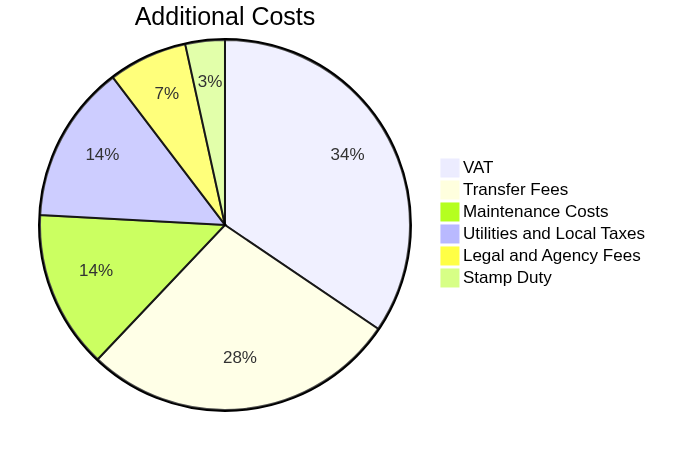
N.B. the above diagram is generic – and the exact breakdown of the additional costs will depend on a variety of factors. The property investment consultants here at The Savvy Investor Limited would be happy to examine these in greater detail with you as required, and to discuss ways of potentially reducing some of them depending on your investment goals and the type of property or properties you are looking for.
Getting Your Timing Right
Property Market Cycles in North Cyprus
Understanding the property market cycles is an essential part of ‘Education Before Investment: Understanding the North Cyprus Property Market’. Like other property markets, North Cyprus experiences cyclical patterns of growth, stagnation, and sometimes decline.
The growth phase is typically characterised by increasing property prices, high demand for properties, and rapid development of new properties. It’s often driven by factors such as economic growth, increased tourism, and infrastructure development. For investors, the growth phase presents an opportunity for capital appreciation.
The stagnation phase is a period where property prices generally remain stable, and there is a balance between property demand and supply. While this phase may not offer significant capital appreciation, it can still present good rental yield opportunities.
The decline phase, although not a regular occurrence, can be triggered by adverse economic events or political uncertainties. During this phase, property prices may drop, and demand for properties can reduce.
It’s important to note that these cycles can vary across different regions within North Cyprus, influenced by local factors such as infrastructure development, tourism demand, and property supply in the area. For instance, a city like Kyrenia, with its high tourist appeal and ongoing infrastructure development, might experience a different cycle compared to a rural region like Guzelyurt.
Timing your property investment according to these market cycles can significantly impact your investment returns. However, it requires a deep understanding of the market trends, ongoing monitoring of local and macroeconomic indicators, and sometimes a bit of patience.
Seasonal Factors and Their Impact
In addition to long-term property market cycles, the North Cyprus property market also experiences seasonal variations that can impact both property prices and rental yields.
Spring and Summer: These are peak tourist seasons in North Cyprus, characterised by warm weather and bustling beaches. It’s the time when the demand for holiday rentals peaks, leading to higher rental yields, particularly in tourist hotspots like Kyrenia and Famagusta. However, it’s also a period of high demand for property purchases, which can sometimes lead to an increase in property prices.
Autumn and Winter: These are relatively quieter periods in terms of tourism. While the rental demand may reduce during these months, they can be an opportune time for property purchases. Some property sellers may be willing to negotiate prices during these slower months, potentially offering better deals for buyers.
While these seasonal factors can influence property prices and rental yields, they should be considered as part of a broader, long-term investment strategy. Property investment, by its nature, is a long-term endeavour, and while it’s important to understand the seasonal trends, decisions should not be solely based on them. It’s the overall understanding and application of the principle of ‘Education Before Investment: Understanding the North Cyprus Property Market’ that will drive long-term investment success.
FAQs on the North Cyprus Property Market
Yes, it’s safe to invest in North Cyprus property, provided that you’ve done your research and followed due legal process.
The buying process in North Cyprus involves several steps, including choosing a property, engaging a solicitor, signing contracts, transferring funds, and finally, receiving the title deed.
Yes, foreigners can buy property in North Cyprus, although there are certain restrictions and processes to follow.
Apart from the property price, other costs include lawyer’s fees, stamp duty, VAT, transfer fees, and ongoing costs such as property maintenance and utility bills.
North Cyprus offers a range of property types, including villas, apartments, bungalows, and commercial properties.
Yes, property owners in North Cyprus can rent out their property, but certain conditions and regulations need to be followed.
Conclusion
In the exciting journey of property investment, the North Cyprus market stands out with its unique appeal and promising potential. However, like any investment, it is not without its challenges and pitfalls. The golden rule of ‘Education Before Investment: Understanding the North Cyprus Property Market’ remains the guiding principle for both new and seasoned investors. The importance of thorough research, seeking professional advice, understanding the legal landscape, recognising market cycles, and considering the additional costs cannot be overstated.
When done right, investing in the North Cyprus property market can offer rewarding returns and the added joy of owning a piece of this Mediterranean paradise. As we’ve walked you through this journey, our hope is that you’re now better equipped and confident to make informed decisions in your investment ventures in North Cyprus. After all, in the dynamic world of property investment, knowledge isn’t just power; it’s also profit.
Remember, the key to success in property investment lies in a simple, yet profound, principle: Invest in your education before you invest in property. That’s the surest path to success in the North Cyprus property market.
We wish you the best of luck in your property investment journey in North Cyprus!
